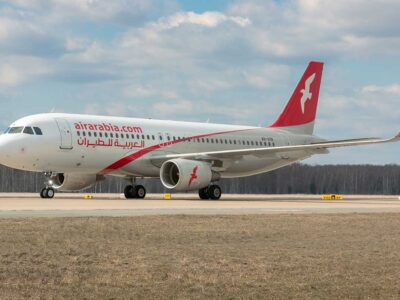Turkish Airlines, Europe’s third largest airline by passenger traffic, is considering issuing an Islamic bond, or sukuk, to finance the purchase of aircraft as the carrier expands its fleet two-fold over the coming ten years, the operator’s CEO Temel Kotil said.
“It could be within a one-year period,” Kotil said in an interview with Arabian Business when asked if the airline would seek to finance its plane purchases with sukuk and when it may issue the bonds. “We didn’t make a decision yet – we’re checking the market to see who is cheaper. When you order these kinds of machines its multibillion of course.”
Global sukuk issuance rose to about US$85bn last year, over 90 percent higher than the previous year, according to Kuwait Finance House Research. Sovereign issuance was the main catalyst for the Sharia-compliant sukuk market last year, making up US$59bn, while companies’ issuance reached US$19bn. About US$109bn in sukuk was issued in the first nine months of 2012, up 69 percent from the same period a year earlier.
Turkey, which is rated BB by Standard & Poor’s, successfully issued its first ever sovereign US$1.5bn sukuk in September. About 58 percent of the bond was sold to investors in the Middle East, 13 percent to Europe, 12 percent to Asia, 9 percent to Turkey and 8 percent to US investors.
The carrier’s expansion during recession years has paid off, analysts said.
“If you look at the numbers you will see that the demand is very strong for Turkish Airlines unlike other European peers,” analyst Alper Özdemir at Oyak Securities in Istanbul said.
Turk Hava Yollari (THY), also known as Turkish Airlines, reported about 21 percent growth in the first nine months of this year from a year ago. In the first five months of the year, THY, which was founded in 1933, had 3.9 percent of global market share, ranking it the eighth largest carrier in the world. The airline, which is 49 percent owned by the government, has been unfazed by the global credit crisis in 2008 and the current recession in Europe and is doubling frequency or adding on routes where other carriers are cutting back.
THY operates 1,000 flights a day and aims to double that over the next ten years. The airline, which currently flies to about 203 destinations and has a fleet of 200 aircraft, mostly made up of narrow body jets, is likely to make new plane orders within the next 18 months, Kotil said, adding that the carrier would be considering wide body, long haul aircraft like Boeing’s 787 Dreamliner and Airbus’s competing A350 in its future plans.
The carrier’s board has yet to make a decision on the purchase of six Airbus A380s or Boeing’s competing 747-8 jumbo planes, he said. By 2022 the airline’s fleet is likely to top 400 jets in line with the carrier’s growth, Kotil said.
“As long as demand is strong I am bullish in terms of the fundamentals [of the company],” Özdemir said.






